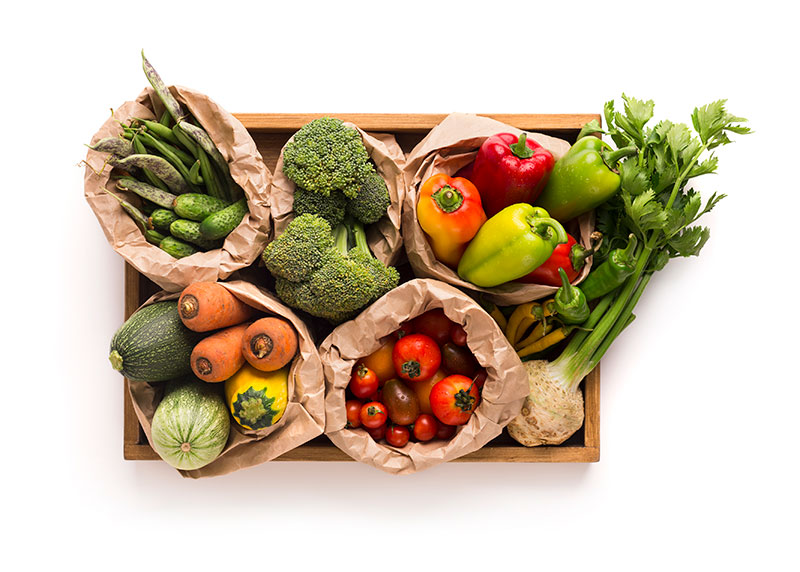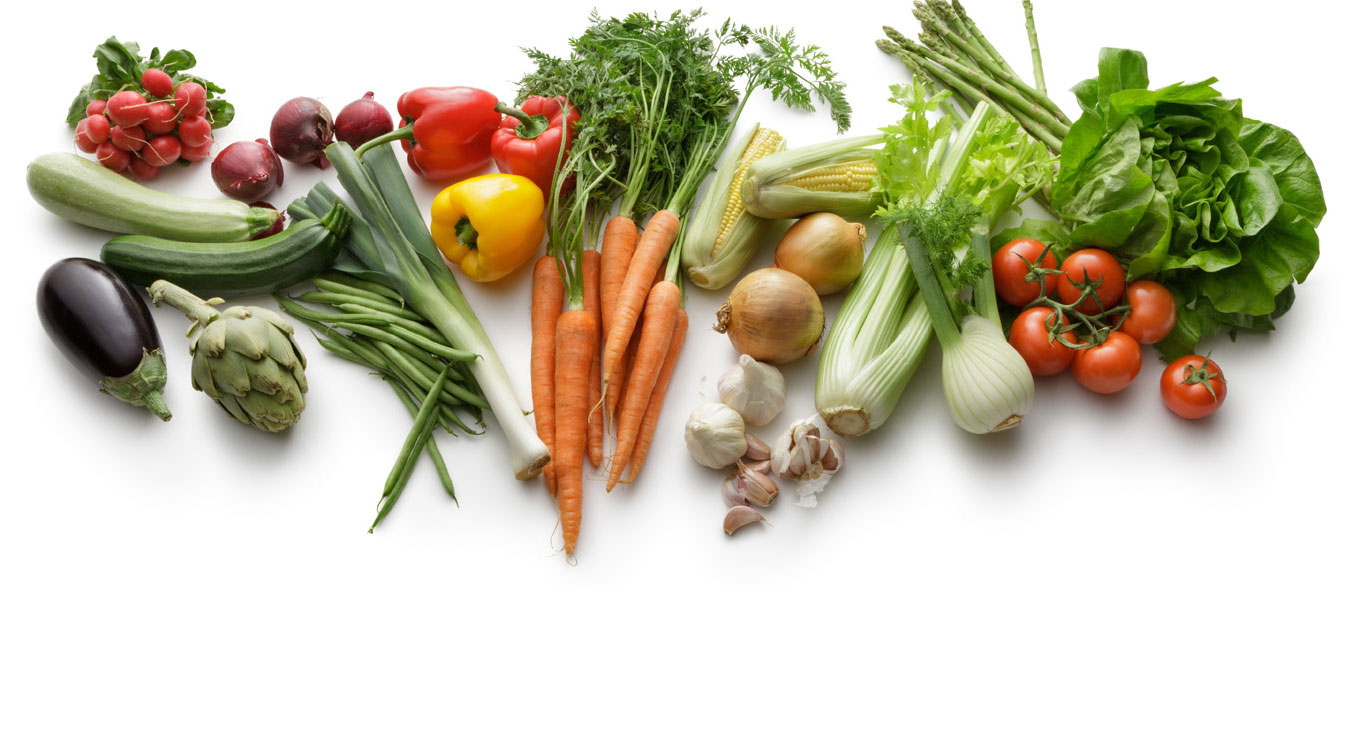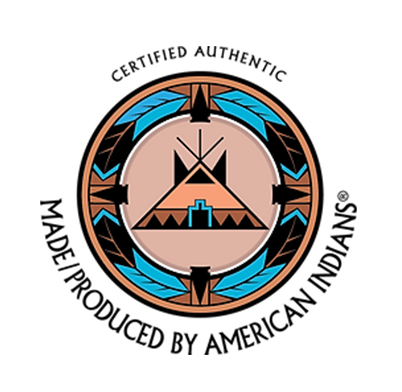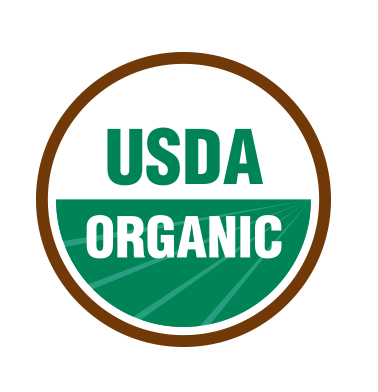What are
Certified Organic Requirements
for Vegetables?
What are
Certified Organic Requirements
for Vegetables?
We grow, play, and thrive on the earth before we return to it at the end of our journeys. Essential to that journey is good, nutritious food that will sustain our bodies and help us thrive. Organic, sustainable farming practices will not only create the best food for our bodies, but will also protect our earth and its precious resources.
Temalpakh Farm, which is connected to the Augustine Casino, is committed to doing the best for our earth and creating the best and most nutritious food for our community, so it employs organic farming practices.
But what exactly goes into organic farming? How do vegetables become certified as organic? Here’s what you need to know:
Standards for Crops
The U.S. Department of Agriculture (USDA) regulates what products can be certified as organic, and there are different standards that have to be met for vegetables versus meats. In order for fruits and vegetables to be certified as organic, they must follow these guidelines:
- No prohibited substances – including synthetic fertilizers and pesticides – may have been applied to the soil in which the crops are grown for at least three years prior to planting
- No genetically modified organisms (GMOs) can be used
- Organic or untreated seeds and seedlings must be used for the planting
- The operation must have distinct and defined borders
- Crop and soil nutrition must be managed through practices such as crop rotation, cover crops, tilling, and the use of animal and crop waste
- Management of pests, weeds, and plant diseases must also be controlled through natural physical, mechanical, and biological practices
- No use of sewage sludge or irradiation on the farm
- Buffer zones must be maintained to prevent the spread of materials
- No field burning is allowed

If the farm has split operations, with some portion dedicated to non-organic farming practices, there must be a clear division and no co-mingling of operations.
Temalpakh Farm has met all of these requirements in order to get USDA certification for our crops. Not only has the farm met the requirements, but it has exceeded them in many categories, maintaining stricter standards for the health and preservation of the land and the exceptional quality of the crops.
Standards for Handling Crops
Unfortunately, even crops that are grown according to these organic standards can become compromised after they leave a farm because of the way they are handled. The crops can be mixed in with non-organic crops, or they can be handled or packaged in a way that puts them in contact with harmful chemicals. For these reasons, the USDA has also defined standards for the way fruits and vegetables must be handled from farm to sale if they are to maintain their organic certification.
Some of the regulations around handling fruits and vegetables to maintain organic certification include:
- Handlers must prevent any co-mingling of organic and non-organic products and must protect organic products from unapproved substances
- Both mechanical and biological processing methods are permitted
- Sanitation of the processing facility and pest management are both required
- Any non-agricultural ingredients must be on the allowed items on the National List of Allowed and Prohibited Items
- Multi-ingredient products must have at least 95 percent organic ingredients in order to be labeled organic
- If something is labeled “made with” organic materials, it must have at least 70 percent organic materials
- Products that have less than 70 percent organic ingredients may not be labeled organic, but they can advertise the use of specific organic materials
- Packaging materials that contain fungicides, fumigants, or preservatives are prohibited
- Records must be maintained of all practices for a minimum of five years
Numerous standards ensure that any product that is labeled organic isn’t actually hiding some hazardous ingredients or contamination by them. When you see that a product is organic certified, you can feel confident knowing that everything about that product has been carefully assessed, from its growth to its packaging to its final sale.
Temalpakh Farm adheres to all standards for the growth of crops and their handling, and it produces all organic fruits and vegetables. Temalpakh believes that the best food is pure and natural, and it does everything it can to bring you the highest quality and most nutritious produce. Its practices are backed by the scrutiny of the USDA and its organic seal.

List Allowed and Prohibited Substances
The National List of Allowed and Prohibited Substances identifies what can and cannot be used in organic products. Simply identifying “natural” ingredients as allowable is not sufficient because some naturally occurring ingredients can also be quite harmful, such as arsenic.
What may be surprising to some is that the list does not strictly prohibit all synthetic substances. For example, there are 25 synthetic substances identified as allowable for pest control – compared to the more than 900 substances that are used in conventional pest control products. Seeing that a product has been certified organic does not mean that no synthetic substances are used in its creation, but it does mean that the produce is as close to coming straight from the earth as it can be.
Non-organic materials that are permitted on the list are approved for only five years at a time. They are allowed to be on the list only when a suitable organic product is not available. At the end of the five-year term, these products are automatically removed from the allowable list unless a petition is made to keep it on. All petitions are carefully reviewed by the National Organic Standards Board, and the review is subject to public comment.
Temalpakh Farm limits the use of synthetic ingredients on the farm as much as possible, often using far fewer than what is allowable under the organic standards. The synthetic substances used are usually approved sanitizers to keep equipment clean that do not actually contact produce.
The National Organic Standards Board
The National Organic Standards Board (NOSB) evaluates organic practices ranging from production to packaging, and it makes recommendations to revise or add regulations. The board is composed of 15 volunteers, who are appointed by the U.S. Secretary of Agriculture.
Board members include four people who own or operate an organic farm, two who own or operate an organic handling facility, one who owns or operates a retail business that has significant dealings in organic products, three who have expertise in environmental protection and conservation, three who represent consumer or public interest groups, one who has expertise in biochemistry, toxicology, or ecology, and one who is a certifying agent accredited by the USDA.
Members are appointed to serve a five-year term.
Enforcement of Organic Standards
Organic certification is considered to be a public-private partnership. Both the National Organic Program (NOP) and the Agricultural Marketing Service (AMS) work together to accredit organizations who certify organic products and to enforce the organic standards. More than 80 organic certifiers review and verify the claims of more than 37,000 farms and businesses.
Certifiers conduct annual reviews of organic businesses, as well as conduct unannounced inspections and test samples of products. They also investigate violations and issue noncompliance notices when violations are discovered.
Businesses may enter into an agreement that would rectify the violations and bring their practices into compliance. If businesses fail to correct the violations, certifiers may suspend or revoke their organic certification, and the business will no longer be able to sell, label, or represent their products as organic.
AMS also enforces organic standards. The AMS performs yearly audits of the certifiers themselves to ensure that standards are being met across the board. It also investigates complaints submitted directly to the NOP about suspected violations. The agency can issue cease-and-desist notices, suspend businesses or certifiers, and levy substantial fines.
The agency and certifiers work together to make sure that no business is mislabeling their products as organic, and that all businesses who have been certified organic continue to maintain the high standards that are expected of such products.
Temalpakh Farm is Committed to the Highest Level of Organic Standards
Temalpakh Farm is owned by the Augustine Band of Cahuilla Indians, and its practices reflect the culture and values of the tribe. The earth is what we all have in common, and Temalpakh believes that it is our responsibility to protect it so that it may continue to thrive for many generations to come. The produce raised at Temalpakh is from the earth and for the people, who are all connected by a patchwork woven by nature. The farm not only strives to create the healthiest and most nourishing food, but also to do so in a way that is good for the planet and sustainable in the long run.
August Casino is proud to work in partnership with Temalpakh Farm, often using its produce in our menu offerings. The casino and the farm both strive to reflect the values of the Augustine Band of Cahuilla Indians in order to strengthen the bonds of our community and to create a legacy. Visit Augustine Casino today to become a part of that community, or order fresh, certified organic produce from the Temalpakh Farm.




